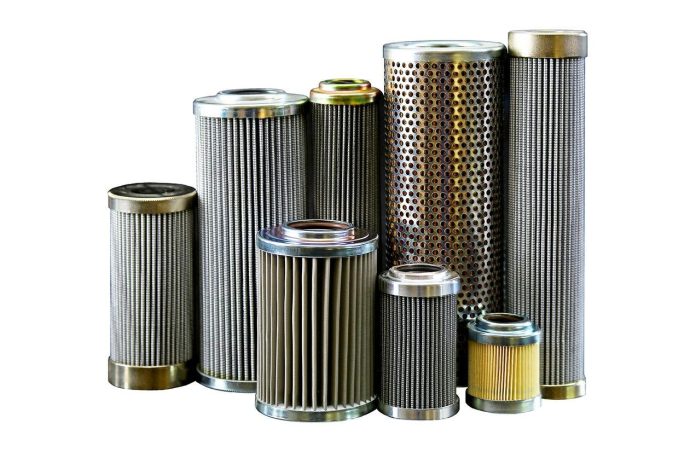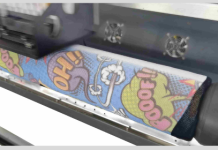Maintaining the integrity of your equipment’s hydraulic system is essential for long-term performance and reduced downtime. One of the most important elements in this system is the Hydraulic Filter, which keeps contaminants like dirt, metal shavings, and water from damaging sensitive components. When it’s time to replace that filter, equipment owners often face a critical decision: Should you buy an OEM (Original Equipment Manufacturer) filter or go with an aftermarket alternative?
Both options have their advantages and drawbacks, and choosing the right one depends on your machine, application, and priorities. Trusted suppliers such as Hydraulic Filter at AmoParts offer both OEM-quality and premium aftermarket options, making it easier to get reliable filtration tailored to your needs.
In this article, we’ll break down the differences between OEM and aftermarket hydraulic filters, including cost, quality, compatibility, and long-term performance, so you can make the right call for your equipment.
What Is an OEM Hydraulic Filter?
An OEM hydraulic filter is manufactured by—or specifically for—the original brand of your machinery. For example, if you own a Komatsu excavator, an OEM filter would be made by Komatsu or its official supplier, designed to match the specifications of your machine exactly.
Pros of OEM Filters:
- Guaranteed fit and performance
- Designed for your specific machine model
- Backed by the manufacturer’s warranty
- Often used in new equipment under service agreements
Cons of OEM Filters:
- Higher price compared to aftermarket alternatives
- Limited availability in remote or high-demand areas
- Less flexibility in sourcing
OEM filters offer peace of mind but at a premium cost. For large fleets or machines under warranty, they can be a smart investment. However, for older equipment or machines used outside strict warranty requirements, the price may be hard to justify.
What Are Aftermarket Hydraulic Filters?
Aftermarket hydraulic filters are manufactured by third-party companies, not affiliated with the original equipment manufacturer. These filters are designed to meet or exceed OEM specifications, and many offer comparable or even superior performance at a more affordable price.
Pros of Aftermarket Filters:
- Lower cost—often 20–40% cheaper than OEM
- Broad availability from multiple suppliers
- Competitive performance with modern materials
- More variety for different budgets and use cases
Cons of Aftermarket Filters:
- Quality can vary between brands
- Not all filters meet OEM performance standards
- May not be recognized under equipment warranty
- Possibility of poor fit if compatibility isn’t verified
Aftermarket filters are ideal for budget-conscious operators, older machinery, or situations where filters need frequent replacement due to harsh conditions.
Key Factors to Consider Before Choosing
🔧 1. Equipment Age and Warranty
If your machine is still under factory warranty, using OEM parts may be a requirement. Installing aftermarket filters might void the coverage. For older equipment out of warranty, aftermarket becomes a more viable option.
💰 2. Cost vs. Value
OEM filters are more expensive, but they offer a clear guarantee of performance. Aftermarket filters provide better value—but only if you choose a reputable brand. Cheap, no-name filters can cost more in the long run due to frequent replacements or system damage.
📦 3. Availability and Lead Time
In some areas, getting an OEM part can take days or weeks. Quality aftermarket filters are often in stock and ship quickly, minimizing downtime.
📄 4. Micron Rating and Performance
Not all filters are created equal. Always compare micron ratings (the size of particles filtered) and Beta ratios (efficiency). Some aftermarket filters exceed OEM specs in both.
🔍 5. Brand Reputation
Stick to well-known aftermarket brands like Donaldson, Baldwin, or Fleetguard. These companies invest in R&D and quality control—unlike lesser-known brands that may cut corners.
Common Myths About Aftermarket Filters
❌ “Aftermarket filters are low quality.”
Not always. Many top-tier aftermarket brands produce filters that meet or exceed OEM standards. In fact, some OEMs source their filters from the same third-party manufacturers!
❌ “You must use OEM to avoid equipment failure.”
Also untrue. Properly matched, high-quality aftermarket filters can provide the same protection as OEM, as long as they are compatible and correctly installed.
❌ “OEM filters last longer.”
Sometimes, but not always. Longevity depends on usage conditions, filter design, and fluid quality. In side-by-side comparisons, many aftermarket filters match OEM service life.
How to Choose a Quality Aftermarket Hydraulic Filter
When going aftermarket, you should take a few extra steps to ensure performance:
- Check the compatibility with your machine’s make, model, and year
- Compare micron ratings and Beta efficiency to the OEM spec
- Buy from a trusted supplier with industry experience
- Read product reviews and feedback from other operators
- Avoid ultra-cheap options that seem too good to be true
AmoParts, for example, carries thoroughly vetted hydraulic filters that align with OEM standards, and their expert team can help match you with the best choice for your equipment.
Final Verdict: Which Should You Buy?
There’s no one-size-fits-all answer, but here’s a simple breakdown:
| Factor | OEM | Aftermarket |
|---|---|---|
| Price | High | Moderate to low |
| Performance Guarantee | Yes | Depends on brand |
| Warranty Coverage | Fully compliant | May void some OEM warranties |
| Availability | May take time | Often readily available |
| Custom Compatibility | Exact match | Must verify specs |
| Long-Term Cost | Higher upfront, fewer risks | Lower upfront, may require more diligence |
Choose OEM if:
- Your machine is under warranty
- You want guaranteed performance
- Downtime is extremely costly
Choose Aftermarket if:
- You’re maintaining older or out-of-warranty equipment
- You want to reduce long-term maintenance costs
- You buy from reputable aftermarket brands
Final Thoughts
Choosing between OEM and aftermarket options for your next Hydraulic Filter doesn’t have to be overwhelming. It comes down to understanding your machine’s needs, the quality of the filter brand, and how critical uptime is for your business.
While OEM parts offer security, modern aftermarket filters from trusted sources like AmoParts often deliver equal performance for a fraction of the cost—especially when your warranty is no longer a concern.
Whatever your choice, always prioritize filter quality, proper fit, and routine maintenance. Your hydraulic system—and your bottom line—depend on it.




